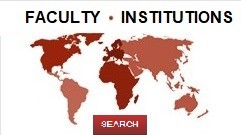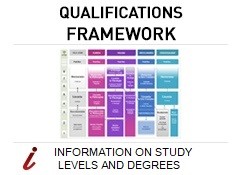Teachers - Regulations
In the academic Community, Teachers play a privileged role, not only due to their central operational tasks, but also by virtue of their contribution to the implementation of educational processes and the effectiveness of educational actions.
Their teachings are the fruit of investigations carried out by individuals, and by the whole teaching staff, in dialogue with the universal scientific community, fully respecting the Magisterium and with the just degree of freedom that research enjoys within the Church.
Teacher Ranks
In Ecclesiastical Academic Institutions, Teacher ranks can be different, as it is determined in the Statutes depending on their level of preparation, integration in the Faculty, permanence, and responsibility, duly considering other Universities’ practices in the same region (cf. Veritatis gaudium 23).
• Teachers who are permanently attached to a Faculty are, in the first place, those who are assumed in full and firm right and who are called Ordinary Professors, next come Extraordinary Professors. Amongst permanent professors, other ranks can be envisaged as is the case in some Universities. Usually, Ordinary Professors are tenured in a specific scientific subject with a different epistemology compared to other subjects; in addition to academic and human skills, “ordinaries” are required to have a sound and stable teaching experience.
They are followed by Extraordinary Professors, who are permanent as well, but were appointed more recently. Permanent Professors can only teach in one Faculty.
• In addition to Permanent Professors, there are also other ranks of teachers, who are called in different ways, for example Visiting, Adjunct, etc. Lastly, in order to carry out specific academic tasks, Teaching Assistants are also hired, who must be equipped with appropriate degrees (cf. Veritatis gaudium 23).
Teacher Appointments
Those who teach theological subjects in any institute of higher studies must have a mandate from the competent ecclesiastical Authority (CIC can. 812).
The Statutes are to define which authorities are responsible for hiring, appointing, and promoting teachers, especially when it is a question of giving them a permanent position (Veritatis gaudium 24).
Those who teach disciplines concerning faith or morals must receive, after making their profession of faith, a canonical mission from the Grand Chancellor or his delegate, for they do not teach on their own authority but by virtue of the mission they have received from the Church. The other teachers must receive permission to teach from the Grand Chancellor or his delegate (Veritatis gaudium 27 § 1).
Non - Catholic teachers, co - opted according to the norms of the competent ecclesiastical authority, (1) require permission to teach from the Grand Chancellor (Veritatis gaudium norme applicative 20 § 1).
Diocesan priests and Religious or those equivalent to Religious from whatever Institute, in order to be teachers in a Faculty or to remain as such, must have the consent of their proper Ordinary or Religious Superior, following the norms established in these matters by competent Church authority (Veritatis gaudium norme applicative 25).
Nihil Obstat, Canonical Missio, and Venia Docendi
All Teachers, before they are given a permanent post or are promoted to a higher academic rank or in both instances, depending on what is laid down in the Statutes, require the Holy See’s «nihil obstat».
The Holy See’s «nihil-obstat» is the statement whereby, pursuant to the Constitution and particular Statutes, there is no obstacle to the suggested appointment.
If the appointment of Permanent Professors involves civil Authorities, the Faculties that fall under a particular concordat law must follow the norms included therein.
Permanence
The decisive step in the relationship between Teachers and Faculties is when the former are coopted as permanent professors; in order for this to happen, a number of conditions must be met, which are laid down in relevant regulations.
• In Catholic universities, it is the duty of the competent statutory authority to ensure that the appointed teachers are not only qualified in scientific and pedagogical expertise, but are also outstanding in their integrity of doctrine and uprightness of life (CIC can. 810 §1).
• The teachers shall have a suitable doctorate or equivalent title or exceptional and singular scientific accomplishment (Veritatis gaudium 25 § 1).
• By a suitable doctorate is meant one that corresponds to the discipline that is being taught. If the discipline is sacred or connected with a sacred discipline, the doctorate must be canonical. In the event that the doctorate is not canonical, the teacher will usually be required to have at least a canonical licentiate (Veritatis gaudium norme applicative 19).
• The teachers shall show documentary proof of suitability for doing scientific research, especially by a published dissertation; they shall also demonstrate teaching ability.
• These requirements for taking on permanent teachers must be applied also, in proportionate measure, for hiring non - permanent ones.
• In hiring teachers, the scientific requirements in current force in the university practice of the local area should be taken into account.
• All teachers of every rank must be marked by an upright life, integrity of doctrine, and devotion to duty, so that they can effectively contribute to the proper goals of an Ecclesiastical Faculty ((Veritatis gaudium 25 § 1).
• Those who teach matters touching on faith and morals are to be conscious of their duty to carry out their work in full communion with the authentic Magisterium of the Church, above all, with that of the Roman Pontiff.
Promotion to Higher Ranks
It is to take place only after a suitable interval of time – at least a three-year term between consecutive levels - and with due reference to teaching skill, to research accomplished, to the publication of scientific works, to the spirit of cooperation in teaching and in research, and to commitment to the Faculty (cf. Veritatis gaudium 28).
A promotion implies a positive judgement, expressed by coopting colleagues, regarding the teacher’s allegiance to the University’s/Faculty’s mission, in relation to:
• scientific competence
• educational/teaching qualities
• availability
• integration and spirit of collaboration within the Faculty.
Actually, it is important that teachers, first of all the permanent ones, are to seek to collaborate with each other, both to the benefit of research – which is tension to the only truth – and for the achievement of the educational objectives of the Institution. It is also recommended that there be collaboration with the teachers of other Faculties, especially those with subjects that have an affinity or some connection with those of the Faculty (cf. Veritatis gaudium norme applicative 23 § 1).
Incompatibility with other Posts
One cannot be at one and the same time a permanent teacher in more than one Faculty (cf. Veritatis gaudium norme applicative 23 § 1).
The teachers, in order to carry out their tasks satisfactorily, must be free from other employment which cannot be reconciled with their duty to do research and to teach, according to what the Statutes require for each rank of teacher.
Depending on their rank, teachers shall work for the Institution on a full or part-time basis and take part in Faculty activities: teaching courses, holding exams, leading seminars, giving guidance for dissertations, and taking part in Council and Board meetings according to the Statutes and internal regulations.
They are proactive in helping students complete their studies and develop their intellectual life, as well as in cultivating research and scientific publications, for the pursuit of which they can obtain, from the Rector or Dean, a partial and/or temporary dispensation from teaching.
Termination
The Statutes must state:
• when and under which conditions a teaching post ends (Veritatis gaudium 30 a));
• for what reasons and under which procedure a teacher can be suspended, or even deprived of his/her post, so as to safeguard suitably the rights of the teachers, of the Faculty or University, and, above all, of the students and also of the ecclesial community (Veritatis gaudium 30 b)).
Academic Freedom
Just freedom should be acknowledged in research and teaching so that true progress can be obtained in learning and understanding divine truth (cf. Veritatis gaudium 38 § 1). Such freedom means willingness to accept truth as it emerges at the end of any research activity, in which there was no interference from elements that are alien to the requirements of methodologies that correspond to studied objects.
In the domain of theology, such freedom is exercised within the Church’s faith; the audacity that often times is impressed upon the theologian’s conscience cannot bear fruit and be «edifying», if it is not accompanied by the patience of maturation (cf. Donum Veritatis 11-12). «Those who are engaged in fields of sacred study have a just freedom to research matters in which they are expert and to express themselves prudently concerning them, with due allegiance to the Magisterium of the Church» (CIC can. 218).





